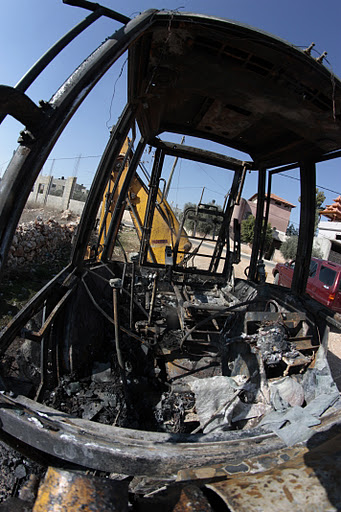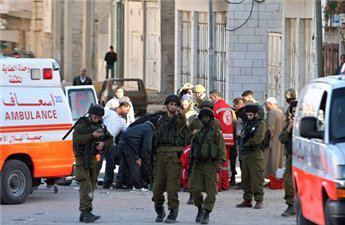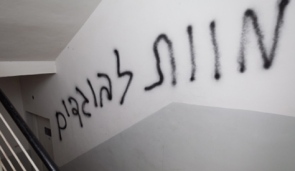Tag: ‘Price tag’ campaign
-

In Photos: The devastation of the Price Tag campaign in Bruqin
by Amal 8 December 2011 | International Solidarity Movement, West Bank The smell of fire and sorrow was evident in Bruqin today, which is located to the west of Salfit in the northern area of the West Bank. Even eight hours later the feeling of loss populated the air. At approximately 2:30 AM a group of…
-

Father of 5 run over and killed by settler
by Thom Andrews 9 November 2011 | International Solidarity Movement, West Bank This afternoon, 45 year old Abdullah Mutaled Al-Mashni, father of 5, was run over and killed by an illegal settler. Whilst returning from collecting his olives, Abdullah was last seen riding his donkey back towards his village of Deir Istia – 7km northwest…
-

Jerusalem offices of Peace Now evacuated after bomb threat
by Oz Rosenberg 7 November 2011 | Haaretz Anonymous attackers spray-painted “price tag” and threatened to plant a bomb in the Jerusalem offices of “Peace Now” on Sunday. Hagit Ofran, director of Peace Now’s Settlement Watch project, said that at around 8 P.M., the office intercom buzzed and a man’s voice said, “The building will…
